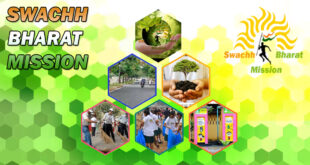Survivors of sex trafficking in Nepal were shocked when a local politician convicted of selling young Nepali girls to brothels in India was released by the Supreme Court of Nepal last year. Rajneesh Bhandari reports on the victims’ fight for justice
On a cloudy day in October 2018, Nirmala Tamang, 24, was working in a field near Ghyangfedi, a village 80 km northwest of Kathmandu, gathering food for her family’s cattle. She cut the green leaves with her sickle, expertly bundling them together. In the background, one could hear the murmur of the river that flowed through her village and the faint gush of a waterfall. It seemed like a pastoral idyll, but there was fear raging in Nirmala’s heart. She was afraid for herself and her two children. Nirmala’s suffering began more than a decade ago, when her first husband sold her to a trafficker, forcing her into years of prostitution in neighbouring India. In 2008, Sun Bahadur Tamang, an influential local politician, was convicted of trafficking Nirmala and charged with trafficking two other Nepali women. Activists say Sun Bahadur may have trafficked more than 200 women from Nuwakot district and other parts of Nepal. But on April 19, 2018, the Supreme Court of Nepal cleared him of all charges and ordered his release on the grounds that his accusers must have mistaken his identity. His release came as a shock to Nirmala. “I am scared,” she says. “But I want justice.” With poverty and earthquakes crippling an already fragile economy, Nepal, in recent years, has become a major hub of human trafficking. More dangerous than the earthquakes, however, is the fact that powerful people behind trafficking networks enjoy impunity. The traffickers get away, say activists, because of their strong ties to politicians, corruption in the police force, and their skill at exploiting loopholes in the system. Arrests are rare and largely limited to low-level operatives.
In February 2018, Shakti-Samuha and other organisations wrote a joint letter to government agencies and commissions, alleging that Sun Bahadur had been involved in trafficking for 20 years and that he has four brothels in India. “Releasing a culprit who is involved in organised crime has increased the challenges for victims’ security, protection and justice,” the letter read. They also questioned Nepal’s Election Commission: “How could a trafficker win an election?” Nepal’s CIB also filed two other cases against Sun Bahadur in the court. Following the Supreme Court’s release of Sun Bahadur on April 19, 2018, the police re-arrested him the following day on the charge of human trafficking in another case in connection with Nirmala’s abduction. Sun Bahadur, who is currently in jail in Kathmandu, has gone to court against his re-arrest. The case is ongoing at the Patna High Court. Nirmala fears that if the politician is released again, he could come after her. “Some traffickers are freed and some are released on bail because of political power,” Sunita says. “If this keeps happening, the survivors will find it tough to keep their hopes of justice alive.” Nirmala lives just an hour’s walk from Sun Bahadur’s home in Nuwakot. “Three years ago, I was on my way to collect relief supplies for my children when I was kidnapped by Sun Bahadur’s men and forced to sign some documents,” she says. She has no idea what documents she was forced to sign. Ever since she was attacked, she has avoided taking the road by his village. Narayan Prasad says that a big problem for the victims is the lack of a policy or infrastructure to protect them. “There is no witness protection and resettlement policy for the victims in Nepal. That leaves many of the survivors vulnerable to further victimisation.” After a day of toil in the fields, as Nirmala walks home, her thoughts are all about her children’s future. “I want them to study,” she says. “But I am not sure if I can protect them and give them a good future.” This story is a collaboration between Journalists for Transparency and 100Reporters, a non-profit news organisation. The name of the trafficking survivor has been changed to protect her identity
Source : https://www.thehindu.com/todays-paper/tp-opinion/a-himalayan-travesty/article26220505.ece
 Chinmaya IAS Academy – Current Affairs Chinmaya IAS Academy – Current Affairs
Chinmaya IAS Academy – Current Affairs Chinmaya IAS Academy – Current Affairs



